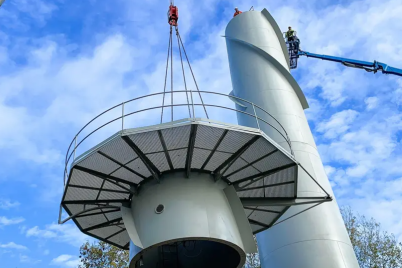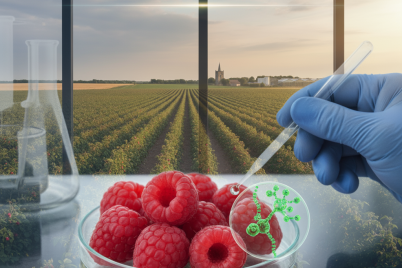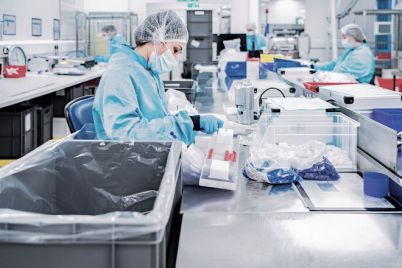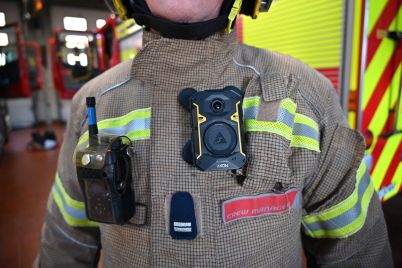Innovative agri-biotech start-up BugBiome has moved to Norwich Research Park to accelerate the development of its new bioinsecticide product.
The company is currently developing an aphicide designed to protect crops such as potatoes, sugar beet, and oilseed rape from aphid infestations. These pests can devastate harvests if left unchecked. BugBiome’s product is derived from microbes naturally associated with plants.
New regulations in agriculture are reducing the use of chemical insecticides, leaving farmers with few effective alternatives. BugBiome aims to offer a range of natural solutions that meet these changing requirements.
The move to Norwich Research Park allows BugBiome to run field trials for its aphicide, conduct research in specialist laboratories, and access the expertise of plant and genome scientists at nearby John Innes Centre and Earlham Institute. The company will also join a growing agri-food cluster on the campus.
One of the main drivers behind the relocation from its previous home at NIAB in Cambridge is the ability to test the efficacy of its aphicide in real-world conditions next year. This move is supported by investment from European Agfunds, Rockstart, and Biotope. Additional fundraising will support the development and commercialisation of BugBiome’s discovery platform, AvidX, and a pipeline of products targeting pests including cabbage stem flea beetles and diamondback moths.
Dr Alicia Showering, CEO and co-founder of BugBiome, said: “Demonstrating field efficacy of our aphid product is critical for commercialisation and partnering. The environment at Norwich Research Park will enable us to accelerate not only this product, but also the broader portfolio of new bioinsecticide solutions farmers urgently need. We are really looking forward to our next phase of development here.”
Roz Bird, CEO of Anglia Innovation Partnership, which manages the Park, welcomed BugBiome to the campus. She said: “We are delighted to add another highly innovative agri-biotech start-up to our community. Over the last three years, we have built a supportive ecosystem for spin-outs, spin-ins, and start-ups to establish themselves and grow.”
BugBiome’s approach focuses on protecting crops while preserving biodiversity. Its microbial solutions target pests without harming beneficial insects, including pollinators and natural predators, helping create more resilient and sustainable farming systems.
The company uses advanced behavioural screening to analyse thousands of microbes, identifying those that deter pests while remaining safe for the environment and humans. Selected microbes are optimised and formulated into stable products that integrate seamlessly with existing crop protection programs.
Unlike traditional chemical pesticides, BugBiome’s products avoid detection by pests, providing longer-lasting protection, reducing application frequency, and lowering the risk of resistance.
By relocating to Norwich Research Park, BugBiome joins a hub of scientific activity specialising in agri-food, health, and the environment. The Park provides access to cutting-edge facilities, collaborative expertise, and a community dedicated to sustainable innovation.
BugBiome’s move reflects a wider trend in agriculture towards smarter, nature-based pest protection. With global crop losses caused by pests and diseases reaching 30–40%, innovative approaches like BugBiome’s offer farmers viable solutions that work with nature rather than against it.
The company’s focus on sustainable agriculture, microbial discovery, and phenotypic screening positions it at the forefront of the UK’s growing agri-biotech sector, helping to safeguard crops, ecosystems, and human health for a more sustainable future.















